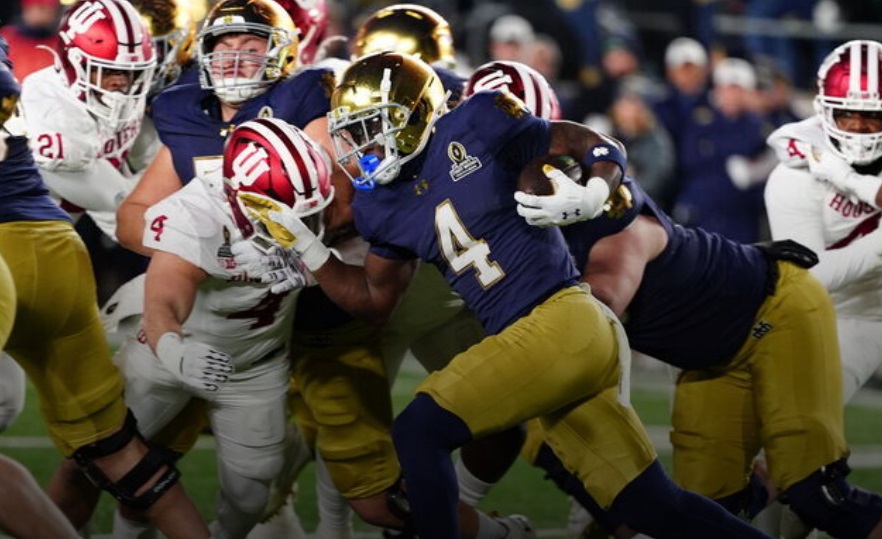Supplements are an enormous part of life for any athlete, and there has probably never been a time when that wasn’t the case. Even the great Babe Ruth abided by a strict supplement regimen during his playing days. Of course, his favorite supplements were hot dogs, cigars and soda – but he hit 714 home runs in his career, so maybe there’s some hope for the weekend warriors among us.
For those who are a bit more serious about athletics, the supplement world has advanced rapidly since the early days of professional sports. The number of choices that you’ll see at any local vitamin and supplement shop has grown to massive proportions. If you want to get an edge and help your body perform as well as it possibly can, there’s a good chance that supplements are going to be a part of your life. Reading this article, you’re going to learn about some of the most popular supplements for athletes in 2022.
Note that if you do play professional sports or aspire to play professionally, your league probably has strict regulations regarding what you’re allowed to put into your body. With that in mind, you should always research a supplement carefully before taking it. Make sure that there are lab reports verifying that the supplement contains no contaminants. Never be afraid to consult with your team, agent or union if you aren’t sure which supplements are and aren’t permitted by your league. Sometimes, a supplement or drug that appears to have nothing to do with performance enhancement can contain a banned substance, so it never hurts to be cautious.
CBD Oil
Cannabidiol (CBD) – a compound sourced from hemp – has been one of the most popular products in the supplement world for a few years now. Clinical studies suggest that CBD oil could potentially be useful for many purposes, and survey results suggest that people are using CBD for anything and everything. The property of CBD that’s likely to be of the greatest interest to athletes, though, is the fact that it seems to reduce certain inflammatory markers. Many people use oral CBD oil, and some also use topical CBD products on sore joints and muscles after games and workout sessions.
Although many people do use CBD for pain relief, perhaps the even more useful property of CBD for athletes is the fact that it may reduce inflammation. Anything that reduces inflammation could potentially improve your recovery times after workouts, enabling you to train harder and more frequently.
Can you fly with CBD? Absolutely. Being sourced from industrial hemp – which contains little to no intoxicating Delta-9 THC – CBD is legal in all 50 states and is permitted on passenger flights. If you’re bringing liquid CBD oil while traveling with the team, remember that the bottle needs to go in a zip-top plastic bag with your other liquid items if you want to bring it in your carry-on bag. You can also bring CBD oil in your checked luggage without any restrictions.
Creatine
Creatine is similar in structure to an amino acid. It’s used by the body in the process of regenerating adenosine triphosphate (ATP), which is a fuel consumed by cells during muscle contraction and other activities. According to the National Institutes of Health, there are numerous clinical studies suggesting that creatine can potentially improve the body’s performance during short high-intensity aerobic activities. Creatine doesn’t work for everyone, but it is one of the most popular supplements for athletes. If it works for you, you may find that you can push yourself further during workouts.
Many of the athletes who use creatine as a supplement find that it seems to be most effective when used as a training aid during the offseason. The reason why creatine is less popular as an in-season supplement is because it can cause weight gain due to water retention, which can potentially rob you of your speed and agility. Many athletes load up on creatine during the offseason and slowly taper their intake as the offseason draws to a close.
Beets and Beet Juice
Beets are incredibly popular among athletes these days because they seem to have a positive effect on cardiovascular performance. There are several ways to take beets as a supplement. You can simply eat whole cooked beets, of course, and you can also drink beet juice or take capsules filled with powdered beets.
The great thing about taking a supplement made from beets is that it’s essentially the same as eating a food, and there are no known negative effects. The bad news, though, is that studies of beets as a supplement for athletes have produced mixed results. Beets may dilate the blood vessels in your muscles, enabling your body to work harder while using less oxygen. That could be useful for you if you participate in endurance sports such as running, cycling and swimming. In particular, beets seem to be most effective when taken by non-athletes who simply want to improve their performance in recreational sports.
Tart Cherry Juice
Here’s another food-based supplement that’s been producing great results for athletes around the world. Some people have found tart cherry juice so effective, in fact, that they’re using it as a replacement for creatine. It’s thought that the unique phytochemicals in tart cherries – particularly in the skins of the fruits – may help to reduce inflammation and pain in the joints and bones. That’s one reason why tart cherry juice is a popular supplement among those who suffer from arthritis.
For athletes, tart cherry juice can potentially enable you to work out harder and for longer periods by shortening your post-workout recovery time. Over the long term, you may find that the effect of tart cherry juice on your recovery enables you to gain muscle mass more quickly. Unfortunately, tart cherry juice hasn’t been studied extensively in clinical settings yet, and the studies that have been conducted have produced mixed results. You have little to lose by trying food-based supplements, though, and the safety profile of tart cherry juice is thought to be very good.
You can view the original article HERE.




























